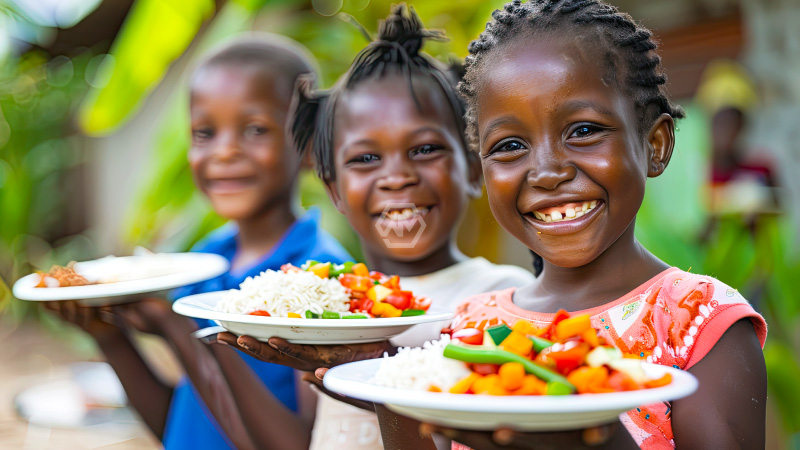- African leaders push for universal school meals ahead of the G20 summit to combat hunger and boost education.
- Nigerian businesses like Zeenab Foods and Sterling Holdings report strong financial growth despite economic headwinds.
- Gambia partners with Red Cross for a $2M malaria initiative as public health remains a top priority across West Africa.
As African nations prepare to make their case at the upcoming G20 summit, a collective push for universal school meal programs is gaining traction.
Meanwhile, economic resilience continues to emerge from various sectors in Africa. Nigeria’s Zeenab Foods recently raised over ₦10.2 billion through an oversubscribed commercial paper, indicating strong investor trust.
Africa’s Dual Strategy: Nourishing Futures and Fueling Economic Momentum
The death of Alhaji Aminu Alhassan Dantata, a towering figure in Nigerian commerce and philanthropy, marks the end of a legacy intertwined with West Africa’s entrepreneurial growth. Known for his expansive business empire and influence, Dantata’s burial in Saudi Arabia reflects both his devout faith and the deep cross-cultural ties in the region. His legacy lives on through a vast family network and the business leaders he mentored, including his nephew, Aliko Dangote.
In The Gambia, the fight against malaria has received a significant boost as the Gambia Red Cross Society handed over a $2 million project to the Ministry of Health. The initiative aims to expand testing, treatment access, and community awareness, reinforcing the country’s broader health strategy. Malaria remains a major public health threat in the region, and this partnership signifies a step toward sustainable disease control.
The continental narrative is further shaped by youth-driven innovation and activism, with students, entrepreneurs, and civic groups pushing for better infrastructure, climate resilience, and representation in policy. As Africa navigates complex socio-economic terrain, local movements are becoming crucial agents of change, demanding transparency, inclusion, and responsiveness from leadership at all levels.
In the realm of geopolitics, Africa’s stance at the G20 summit could shift global priorities toward development-centric policies. By spotlighting food security, education, and public health, African nations are asserting their role not as passive recipients of aid but as drivers of solutions, ready to engage as equal partners on the world stage.
Africa is stepping forward with a clear voice—combining grassroots ambition with regional policy to demand sustainable development and global partnership.
“Education is the most powerful weapon which you can use to change the world.” – Nelson Mandela



